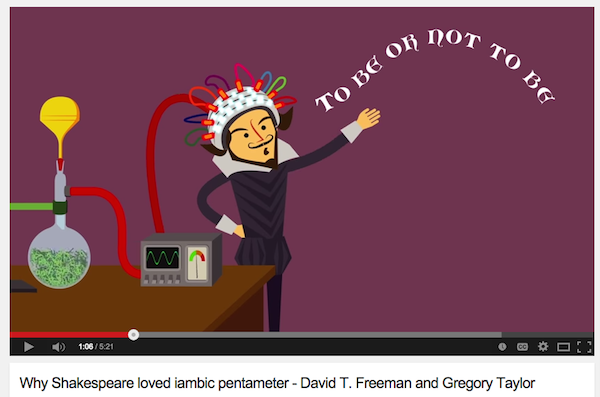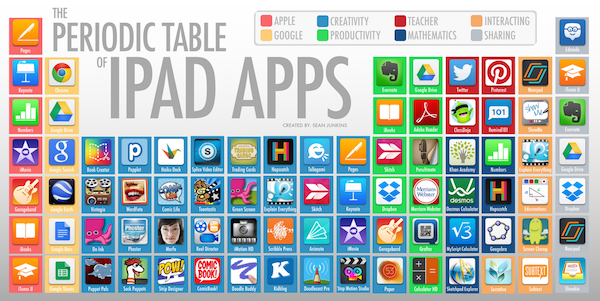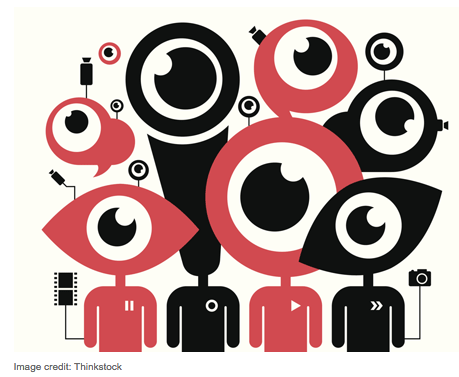Noah Tavlin works for TED-Ed and has watched over 500 of the videos. In this blog post he concludes that:
“Every innovation begins with a question.”
“Discovery doesn’t begin with knowledge — it begins with questions and curiosity.”
“Learning from educators and animators has inspired me to think more deeply about things — not just to skim the surface.”
Videos make a great “OPEN” lesson for Guided Inquiry – inspired thinking leads to deep questions.
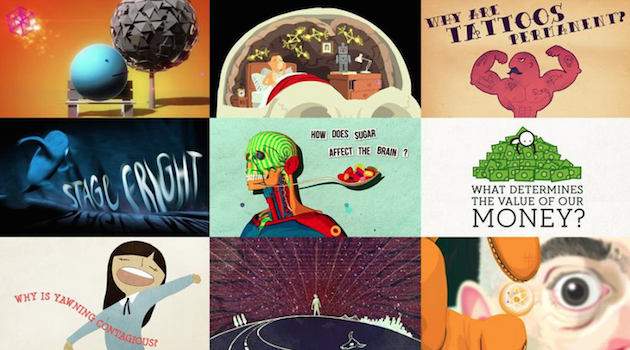
Shakespeare – introduction to his poetic style
Engage students with technology
Kelly Walsh shares ’10 highly engaging uses of technology in the classroom, along with dozens of tools and resources for implementation’ in 10 of the Most Engaging Uses of Instructional Technology (with Dozens of Resources and Tools). This is a great place to explore for new ideas as the new school year begins.
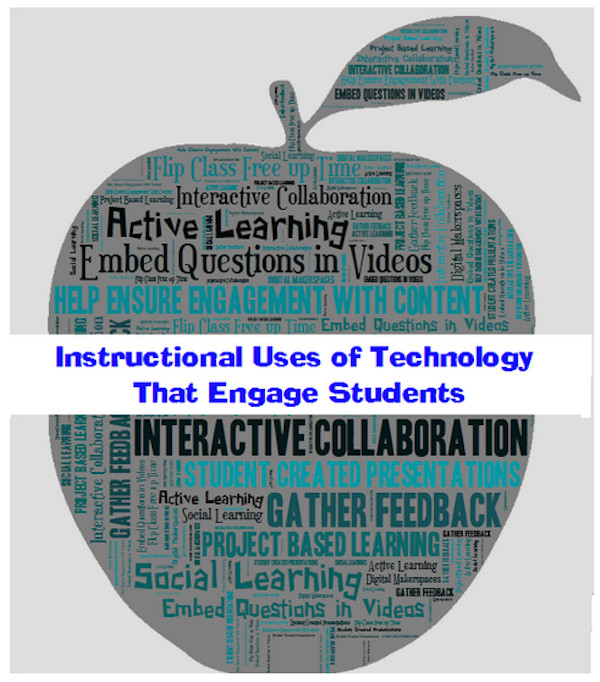
Flipped Classroom explained
Educational Technology and Mobile Learning have posted a graphic and two videos to explain what in entailed in ‘flipping’ your classroom. It is one of the best explanations I have seen. As personal technology use expands in our school with the implementation of BYOD, Flipped Classroom is now a possibility.
“Flipped classroom or flipped learning is a methodology, an approach to learning in which technology is employed to reverse the traditional role of classroom time. If in the past, classroom time is spent at lecturing to students , now in a flipped model, this time is utilized to encourage individualized learning and provide one-on-one help to students.”
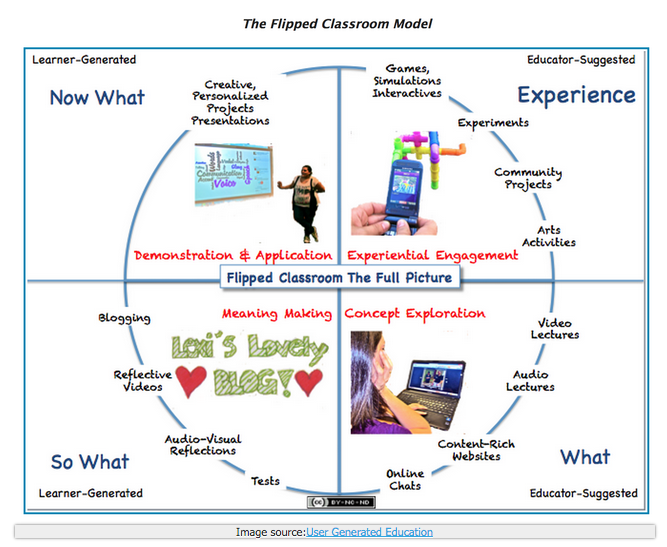
Periodic Table of iPad Apps
Travelling the route of the explorers
This interactive site charts the route of some of the world’s famous travellers: Magellan, Cook, Columbus, Pizzaro and many more. Our Year 7 students are about to begin a Guided Inquiry unit on Ancient China and “The Old Silk Road” and “The voyages of Marco Polo” maps will be links I make available for this.
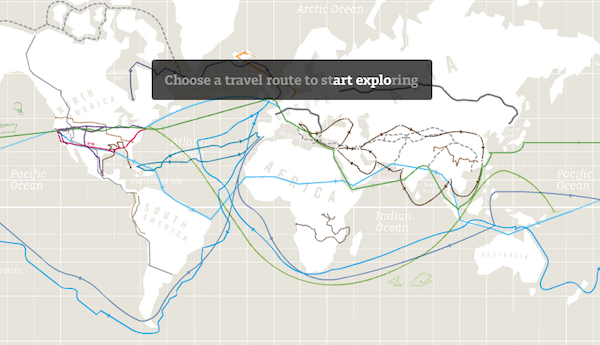
A tool for everything
This chart found on David Andrade’ blog Educational technology Guy covers most educational activities and provides relevant tools to assist in making or sharing. As new tools pop up all the time this updates many lists I have collected before.
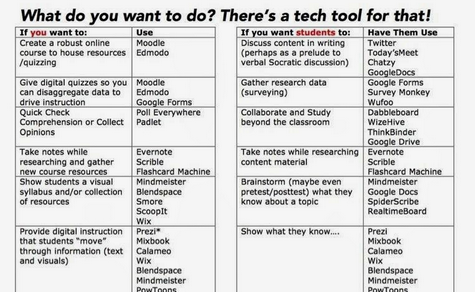
Google search – finding the best hits
Tips for storytelling
Danyah Miller writing for theguardian.com on Monday 6 October 2014 shares ideas about ten ways to make our storytelling come alive for children.
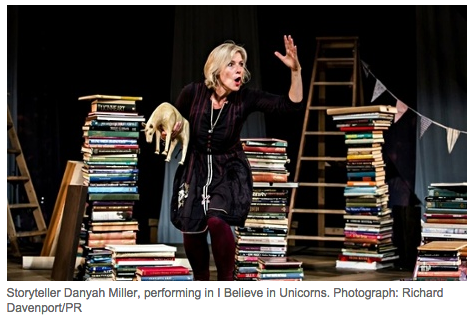
Launch of Mrs T’s Kooky Pants
One of our Primary teachers, Jennifer Reid, recently had her first children’s book published. A number of teachers from Broughton and some of her students attended the launch at The Children’s Bookshop at Beecroft.
Drawing on her own experiences, Jennifer wrote the book for children to help explain about cancer in a way that they can understand.
Learning frameworks and Guided Inquiry
Champlain Valley Union High School have sent this infographic via their Twitter feed. It visually illustrates the important role of Critical Thinking in learning.
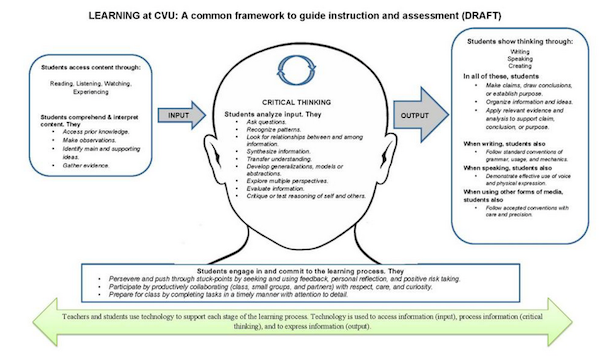
So many different learning frameworks and discussions are taking place but the more I look at them and compare them the more I realise just how encompassing the Guided Inquiry Design Process is – as it embeds all elements found in the others.
During Guided Inquiry students discover ‘content’ according to their interest in a topic area then go on to analyse and finally to share and evaluate their learning. This infographic illustrates this process very well.
In the Guided Inquiry Design Process, assessment occurs throughout the whole process – Assessment ‘for’ learning,’in learning’ and ‘of learning’. Students share in Inquiry circles at various stages and all learning is transparent and shared. The support of the teacher and teacher librarian make it a truly collaborative experience.
Teach for the whole brain
Half-Brain Teaching Isn’t Enough Infographic
“In today’s societies there is a lot of focus on the logical and analytical brain functions. Many schools are cutting the ‘extras’ like art and music. However, students need to be well rounded and really need subjects like those to be considered more than ‘extra’, and while there are many people fighting to keep these programs in schools, the international economy and jobs outlook is demanding more focus on STEM.”

Find more education infographics on e-Learning Infographics
The more you use your brain the more it grows
The Learning Myth: Why I’ll Never Tell My Son He’s Smart by Salman Kahn from the Kahn Academy looks at ways to ‘grow our intelligence’. With such easy access to resources and activities the potential is there to grow our ‘mindset’.
Researchers have known for some time that the brain is like a muscle; that the more you use it, the more it grows. They’ve found that neural connections form and deepen most when we make mistakes doing difficult tasks rather than repeatedly having success with easy ones.
Kindergarten’s ‘Farm Day’
After a day filled with exhausting ‘farm’ activities all three classes headed to the IRC for some ‘Farm’ stories. First we read two stories illustrated on the Interactive Board attached to a projection lamp so everyone could see the book. Michael Rosen‘s picture book Oww!: A wriggly piglet with a prickly problem was popular then Russell the sheep by Rob Scotton was a real favourite!
Finally we had some good old-fashioned fun singing “Old MadDonald had a farm” with all the puppets and sound effects we could muster.
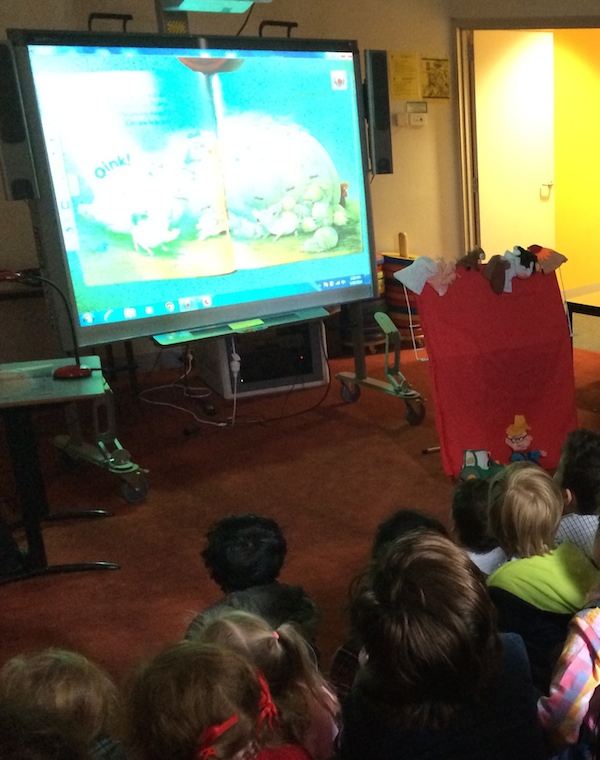
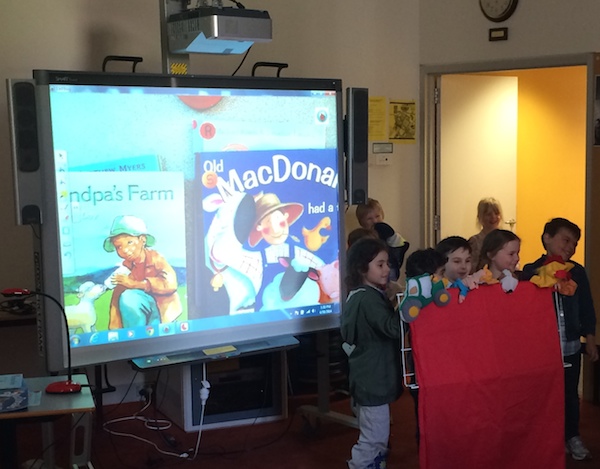
Evaluating the quality of online information
In her post on the Edutopia Blog, Julie Coiro, Associate Professor of Education at the University of Rhode Island, suggests ways to develop skills in adolescents dealing with online information.
“An essential part of online research is the ability to critically evaluate information. This includes the ability to read and evaluate its level of accuracy, reliability and bias.”
Four strategies are outlined to assist in developing these skills of discernment.

